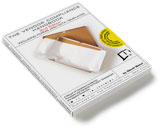L/C |
See: Letter of Credit |
Lab Dips |
Color approvals sent to the customer by a dyer, spinner or printer on the appropriate fiber, yarn or fabric. The customer must approve, or reject the “dips” with appropriate comments for correction. Approved lab dips become color standards for production. |
Landed Duty Paid |
See: LDP |
LDP |
(Landed Duty Paid) The total cost of a product delivered to a given location; the cost of production plus the transportation, appropriate U.S. Customs duties and taxes to the customer/purchaser’s location. |
Lead Time |
The time it takes to go from initial product development or design concept to completed item and can involve the time for prototyping, counter samples, approvals, weaving or knitting, etc. |
Less than Truckload |
See: LTL |
Letter of Credit, Commercial |
A bank-issued document (requested by the customer/applicant) to a specified beneficiary by which the bank substitutes its credit for that of the applicant. The bank makes payments to the beneficiary under conditions specified in the L/C. |
Letter of Credit, Sight |
A Letter of Credit, payable immediately upon shipment of the merchandise or on demand with accompanying documents of compliance (compare Letter of Credit, Usance). |
Letter of Credit, Usance |
A Letter of Credit payable at some future date, also called a Timed Letter of Credit because it allows the buyer a certain period of time to pay all drawings under the Letter of Credit (compare Letter of Credit, Sight). The bank accepts a draft and payment is made at a future point in time. |
Ligne (Buttons) |
The system of measuring the overall width (diameter) of a button. In the English Ligne System, there are 40 lignes to the inch. A 20-ligne button would be 1/2” in diameter. |
Line (Merchandise) Plan |
A plan developed by and for the design, and that merchandising staff outlining styles, by their categories, for a coming season and forms the basis of a seasonal collection. An outline or framework for product development. Line Plans are usually based on sales analysis of previous seasons. Also may involve an SKU count. |
Lining |
Fabrics used on the inside of a garment to hide seams or interior construction elements. Also to provide ease of removal, additional seam strength and/or warmth. A garment can be fully or partially lined. |
Linking or Looping |
An assembly technique most often used in fully-fashioned knits. The various sections and knit trims of the garment are joined together by a machine that produces a flexible, elastic chain-stitch seam. The machine operator matches each stitch along a seam to its counterpart on the other panel to be joined. It is a high quality, labor-intensive process. |
Links-Links |
Flat or circular knitting that forms a textile (yardage for cut-and-sew) that often has a horizontally ribbed surface of alternating courses of knit and purl stitches. |
Loom |
The mechanism for weaving a textile (woven fabric). A loom usually consists of a warp (a series of closely set threads running parallel to the selvage) and the weft or filling yarn that is woven from side to side creating the desired fabric. The warp (warp beam) on a modern power loom may hold thousands of yards of thread in preparation for weaving. Often used incorrectly for a knitting machine. |
LTL |
(Less than Truckload) A shipment weighing less than the minimum weight needed to use the lesser truckload rate. |
